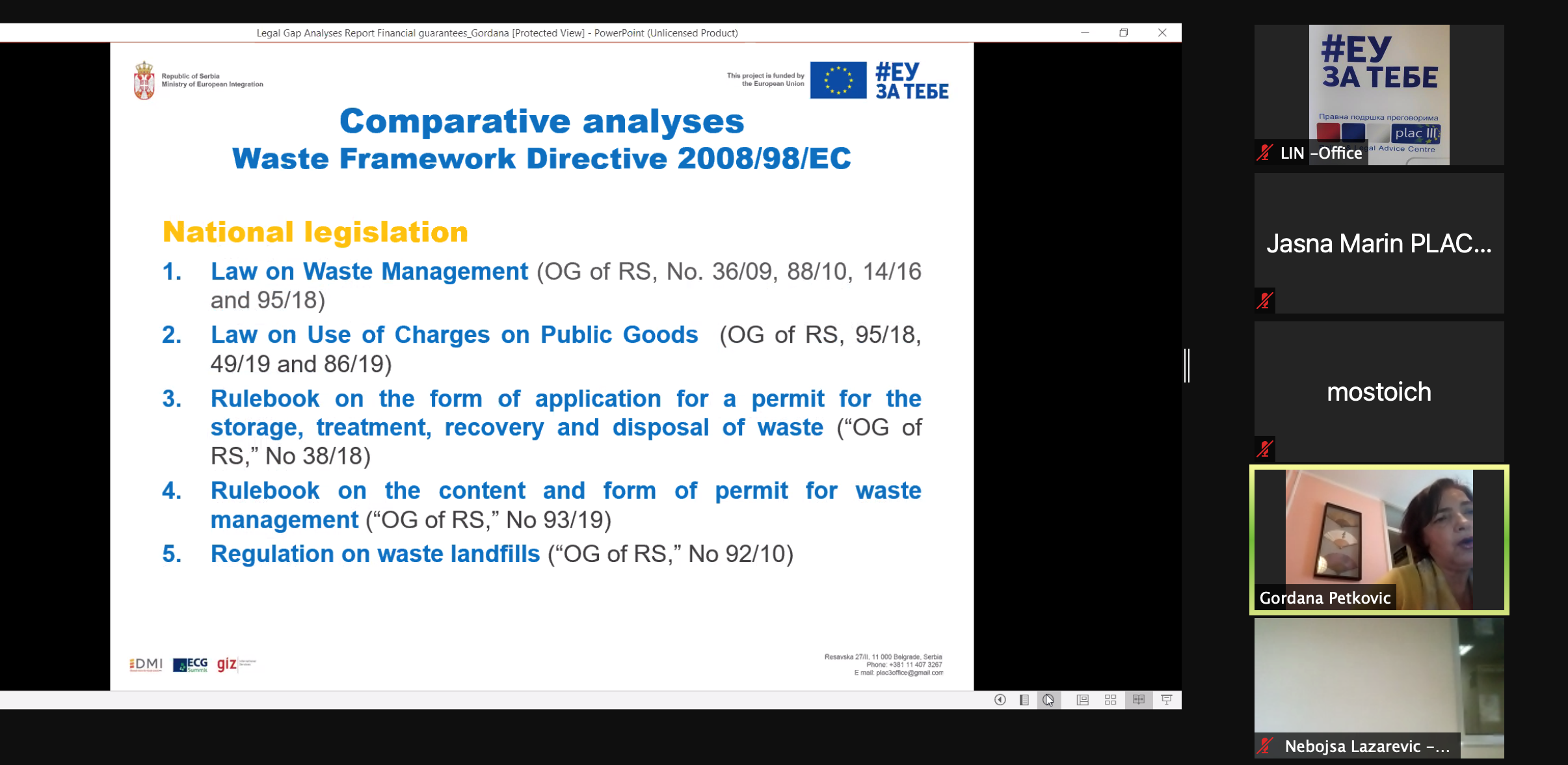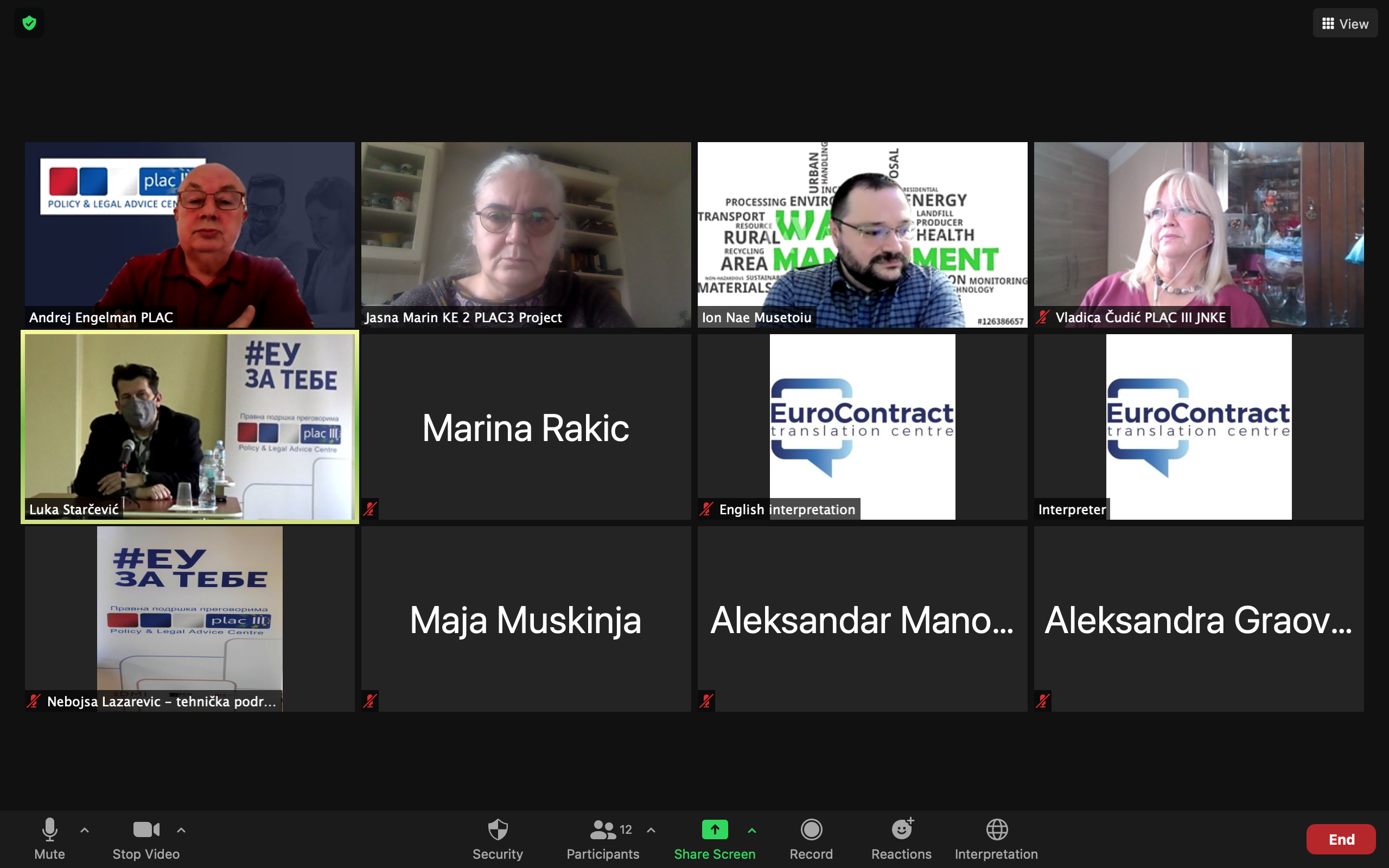In support of further harmonisation of national legislation with Union acquis and its effective implementation in areas covered by Negotiation Chapter 27, the Policy and Legal Advice Center (PLAC III) project has organised two workshops in the area of waste management - on obtaining financial guarantees needed for waste management operations and on transposing the End-of-life vehicles Directive.
The basic principle in environmental protection in the European Union is “polluter pays” principle. Predictable financing based on this principle is needed to raise the level of investment in the sector. According to the European Commission reports, further progress is needed in Serbia in transposing and implementing the Environmental Liability Directive (ELD) 2004/35, the Waste FrameworkDirective 2018/851 and the Regulation on shipments of waste 1013/2006/EC in the field of financial guarantees, insurance and other financial instruments needed for covering the costs of waste management and transboundary movement of waste. At the workshop held on 25 February 2021, project experts Marko Ostoich and Gordana Petković presented a comparative analysis of examples of European practice when it concerns issuing of financial guarantees, as well as the results of the legal gap analysis of national legislation with Union acquis and recommendations for further alignment. PLAC III project experts drafted amendments to the Law on Waste Management, as well as amendments to regulations on financial guarantees in the field of waste management operations and to ensure transboundary movements of waste.

PLAC III project has also provided support to the Ministry of Environmental Protection in transposing Union acquis in the field of end-of-life vehicles, which are declared as hazardous waste and are one of the causes of environmental pollution. The results of the project support were presented at the workshop held on 4 March 2021. Project expert Ion Nae Musetoiu presented the Directive 2000/53/EC on end-of-life vehicles (ELV) as well as accompanying EU legislative acts. The objectives in implementation of this legislative framework are to minimise the environmental impact of ELVs and to ensure proper functioning of the internal market (and avoid distortions of competition). Project expert Vladica Čudić presented a detailed analysis of the situation in the sector in Serbia, where the average age of vehicles is 17 years, and as much as 78% of the total market in 2019 accounted to used vehicles. Experts’recommendations for achieving transposition are to introduce a provision on extended producer responsibility in the Law on Waste Management and adopt bylaws regulating the responsibility of economic operators, which should be given subsidies.

The workshops were held online and attended by the representatives of the Ministry of Environmental Protection and stakeholder organisations.
Cover photo: Audiovisual service, European Commission



